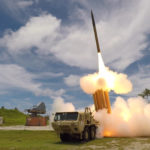
The incoming administration of President-elect Donald Trump should be guided by two principles when it comes to cyber security: making sure there are consequences for foreign entities that hack United States networks and providing incentives for U.S. entities to better secure their networks, says a new bipartisan report released on Wednesday.There remains “boundless opportunity” for cyber attackers and “creation of consequences for cyber crime, espionage, and cyber attack and making these consequences clear to malicious actors is the most effective…

 By
By 











